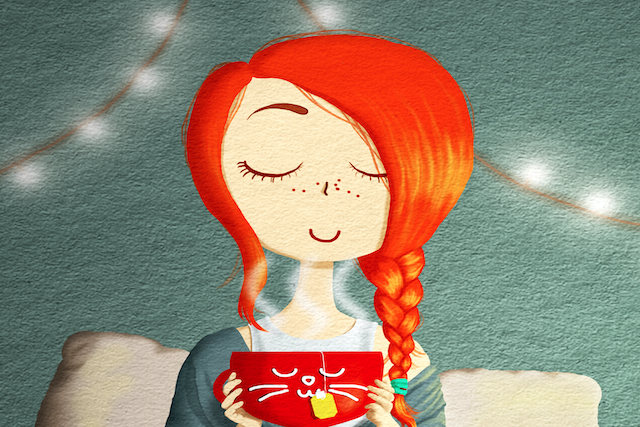
“We must never forget that it is through our actions, words, and thoughts that we have a choice.” ~Sogyal Rinpoche
Just a few short years ago, I would have relished in being called a “yes person.”
I loved that label. I thought it made me approachable, helpful, and charitable, and I loved being “top of mind” for so many people and wonderful opportunities.
Big project at work? I was there. A shoulder to cry on? You bet. A shopping buddy? Sure, I’m available! An exercise partner, a counselor, an interior designer, a cook, a cleaner, a proofreader, a tour guide—I was the go-to girl for anything and everything.
And for a very long time, I said a big, resounding “yes, please!” to all of it.
Yes to the design work, yes to the extra projects, yes to the friends who needed me. I was an advice-giver, a support network, a teacher, a healer.
But during the throes of helping what seemed like a million different people, my “yes person” mentality started to drain me—and rapidly at that.
Sure enough, I was helping everyone but myself.
It was only when I started to read spiritual texts and personal development websites that I began to realize how exhausted I actually was. And worse, that it was most likely my need to say “yes” all the time (a trait I had previously cherished), that was burning me out.
Here I was saying “yes” to every offer, invitation, and request under the sun, yet I’d wind up sick, alone, and hacking my lungs out more often than I’d like to admit.
I knew I had to overcome my incessant need to say “yes” all the time and start prioritizing self-care, so I went about setting strong boundaries for myself to start restoring my energy.
Below are the steps I took to set my strong boundaries and overcome my need to say “yes” all the time.
1. Speak up.
I knew I had to start small, so I gradually began to let people know how depleted I was feeling.
As it turned out, people weren’t annoyed at me for talking about how tired I was; in fact, they supported me and encouraged me to take time out and rest. It gave me the confidence I needed to start saying “no” once in a while. It wasn’t a sign of weakness that I was speaking out; it was a sign of strength.
Another good reason to start speaking up about your fatigue, particularly if you’re a “yes” person, is to pre-emptively ward off peoples’ requests. When I authentically talked about how tired or busy I was, I found that people didn’t call on me as much as they used to, because they were already aware of how I burnt out I was feeling.
2. Make self-care non-negotiable.
You know that big meeting at work you literally can’t miss? Or the way you lock in the weekly screening of your favorite TV show? Make your self-care routine as rigid as that—make it non-negotiable.
When you start making self-care a priority (and enact strong boundaries around your routine), you’re able to fill your cup more fully, and work on being as healthy and happy as possible.
Here are some examples from my self-care routine:
- I schedule a massage once a month, and I make sure I budget for it in advance, too.
- I turn off all technology by 9:30pm. Not only do I sleep better for it, but also I find that I’m reading more books instead of just mindlessly scrolling on yet another social media site.
- I now only check my email twice a day; I find I’m less overwhelmed from implementing this practice and am no longer a slave to my inbox.
- I move my body every day. Whether it’s a work out at the gym, a few stretches in my hotel room, or a long walk if I’m on the road, moving my body every day is an essential part of my self-care routine and helps keep my energy levels high.
- I eat vegetables at every meal—a green smoothie or juice with breakfast, a big salad at lunch, and a huge serving of vegetables at dinner. Vegetables (in particular, green vegetables) are my must-have staple item. They keep my head clear and my body energized.
- I forgo my morning routine if necessary. Some days, a full-on morning routine calls me, but when I genuinely need to sleep in and recover, I surrender and give myself permission to do so. It’s about knowing the difference between “laziness” and genuine “rest.” One feels icky (laziness) and one feels like relief (rest).
After enacting these strong boundaries around my self-care and energy use, my health started to return to its optimum state. It was only then that I was able to start saying “yes” again—but this time, only to projects and people that really lit me up.
3. Hold strong when others test your boundaries.
Even now after having rock-solid boundaries for years, others test them. I have to consciously remind myself to hold strong.
When others test your boundaries, choose to think of it as your chance to prove to the universe that you can keep your own promises.
For example, if you’re the kind of person who needs sunshine but you work in an office where nobody takes their lunch break, stick to your guns.
If people shake their heads every time you head out to get your Vitamin D hit, stick to your boundaries and hold your ground—explain to your boss why you need to get out of the office or even draw their attention to the working hours policy in your area. Better yet, use your work to prove that your productivity is higher due to your lunch breaks!
When you use strategies to help you say “no,” sticking to your boundaries when others test them makes the whole process a lot easier.
4. Learn how to say “no.”
Perhaps the hardest lesson when you’re setting strong boundaries is learning how to say “no.” After all, when you’ve been a “yes person” your whole life, it can be very difficult to turn that habit around, but it’s important to master if you want to have strong boundaries.
Here are some strategies to help you say no:
- Practice saying it in a mirror.
- Have some polite, pre-scripted text messages and emails on hand so you you’re not stuck trying to find the words to say “no.”
- Try saying “not right now” instead of a flat out “no.” (Often, the request will disappear!)
- Let your friends and family know that you need some space (pre-empt the need for them to call on you).
Saying no can be difficult—by nature, we humans want to be helpful and kind—but ultimately, you need to be helpful and kind to yourself, first and foremost. And saying “no” does get easier with practice, I promise.
About Chloe Thea
Chloe Thea is a Holistic Time Management and Productivity Coach - passionate about helping big-hearted creatives become masters of their time and energy so they can shine bigger, brighter. She writes over at You Can Go Your Own Way. Get Chloe’s Organized In 30 Minutes Kit and join the tribe on Facebook for practical time management tips.













 Though I run this site, it is not mine. It's ours. It's not about me. It's about us. Your stories and your wisdom are just as meaningful as mine.
Though I run this site, it is not mine. It's ours. It's not about me. It's about us. Your stories and your wisdom are just as meaningful as mine.
I feel like this post was written for me. This is what I am learning to do right now and it isn’t easy. I have always been the “go-to” person in my family. Now, it is exhausting. The boundaries and limits are helping, but it’s not always so smooth. Sometimes when I say “no” I feel guilty. I have to tell myself that it’s okay. I can’t take care of others, if I can’t even take care of myself! I am getting better over time. Thank you for sharing, perfect timing! =)
Hi Peace. I admire your self-awareness. The Buddha taught his followers to practice loving-kindness by first cultivating it for themselves. Of course, it’s easier said than done. Admittedly, I used to find it easier to practice metta and tonglen meditations by focusing on others before myself.
Thanks Bill. I love the Buddha’s teachings. 🙂 I’ve noticed when I take care of myself, I am more balanced. I don’t mind being there for others. If I ignore my own self-care I feel unbalanced. I guess taking care of ourselves is kind of like a battery re-charging.
Hi Peace – it certainly is exhausting but it’s wonderful to hear your growth. Feeling guilty is so common, but it sounds like you’re doing a great job, particularly with repeating these mantras to yourself. So glad you enjoyed the article, Chloe.
I really enjoyed this article and feel inspired to take a review of my own boundaries as I sometimes feel drained trying to please everyone all the time. I have an eleven month old daughter and I feel its important to role model healthy boundaries and assertiveness for her. I particularly liked the part about self care being non negotiable and I’m going to steal the no technology after 9:30 rule! I think everyone should do this!
Thank you Helen! I’m so glad to hear that you’re passionate about role modelling for your daughter. Glad you enjoyed the piece, Chloe
This is like co-dependency, finding it hard to set boundaries and saying no. Good article
Thanks for reading Maya, glad you enjoyed the piece! Setting boundaries can be difficult, but it’s well worth it! Chloe 🙂
Thank you Chloe 🙂 reading your words reminded me of me ! I have got better..i do say no more than I used to ,but I fret over those ,feeling guilty ..but im working on that 🙂 . I put my hands up at not taking care of myself of pushing me too far (I think women in general have this wired into them from birth) but ..yep you guessed..i am working on that ! lol
I agree with you – I think we’re hardwired to please others! Wonderful to hear you’re working on this – it’s a lifelong process I have found – and for me, being prepared is always the best way to say ‘no’! Thanks for reading, Chloe
Great article Chloe, and yet still so hard for us all to do. And I totally agree with you that being prepared really helps when it comes to the difficult moment you need to say ‘no thank you’.
Thank you Ellen! Being prepared always gives me the confidence to say ‘ no thank you’ and I’m much less likely to ‘cave’ if I have a solid plan in place to help me. Thank you for reading, Chloe 🙂
Awesome article. Great tips. Even though I no longer consider myself a ‘yes person’ I found them very helpful 🙂 Thanks Chloe.
Thanks for reading Chloe! I’m so glad you found them useful! Took me years to get out of the ‘yes’ mentality, and I’m still working on it, but like you, I no longer consider myself a ‘yes person’ – a huge achievement!
Ahhh saying no really is hard. Especially when part of your identity has been being a ‘yes’ person – I’m with you on that one! Great to hear from someone who’s done it! xx
It certainly is hard! But so worth trying to grow and overcome. Of course, I’m not perfect either, but it’s all about coming back into yourself and prioritising your self care! Thanks for reading Louise! 🙂